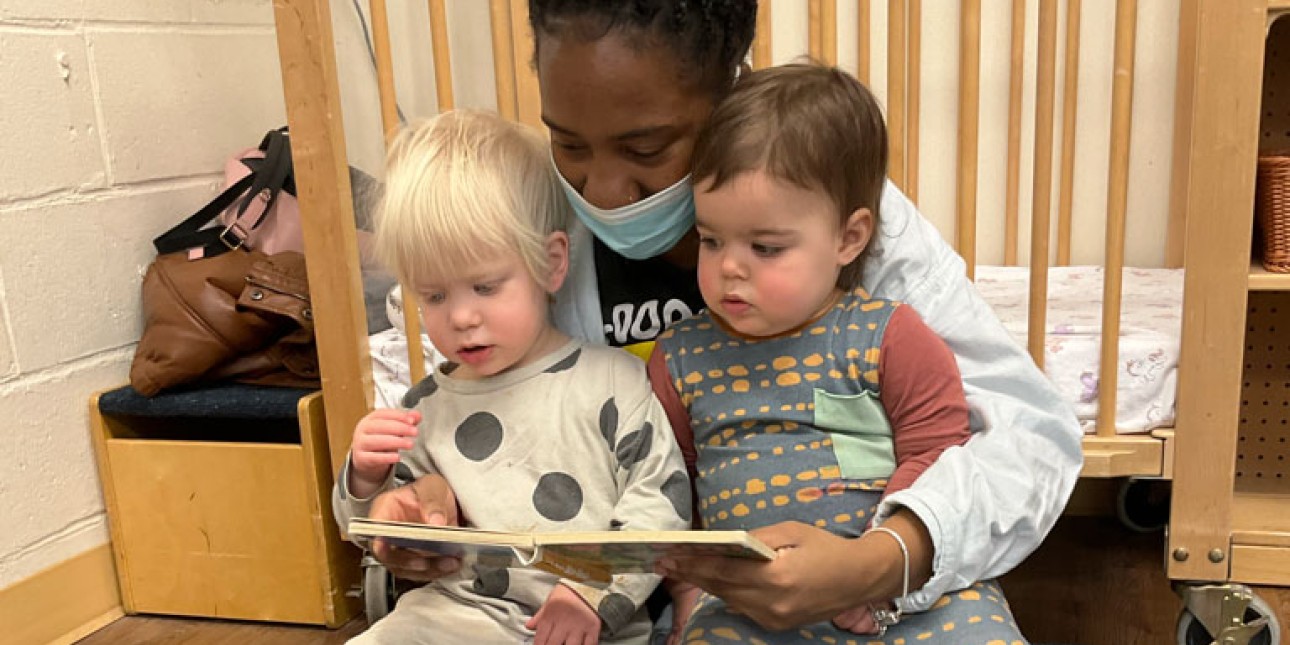PIC has its own language

A monthly message from Executive Director Deb Green
Every organization has its own language. During several recent conversations with PIC families, I was reminded that there are many aspects of PIC’s “language” that may be unfamiliar to some and that deserve some further explanation. I am using this opportunity to explain a few of what may be distinctions of our PIC language and culture.
The PIC “Push”
It is a longtime PIC tradition for children to “push” their parent or caregiver from the classroom in the morning. Perhaps this provides some closure for the child whose adults are leaving for the day. Perhaps the children are saying “Now, I have my work to do, and you should go and do yours” or “Don’t worry, folks, I’ll have a good day and will see you later.” Whatever the case, for many children at PIC, this is a helpful ritual that you may wish to adopt.
Developing an “Emotional Vocabulary”
In order to talk about their own feelings and to identify the feelings of others, children need to learn the complex vocabulary of human emotions. Teachers spend significant time helping children learn the basic feelings of happiness and sadness, but also explore the more nuanced feelings of fear, anxiousness, surprise, guilt, etc. Children begin to identify the “words” of feelings, and also learn about the feelings exhibited in the body language of others.
“Are you Ok?”
Once children learn the body language of sadness, we mentor what it means to show empathy. Approaching a child who may look sad and asking “Are you ok?” or offering to be with the child while they do an activity together are the beginning acts of showing empathy.
“I Need Some Space”
Often when young children feel frustrated or angry, they are unsure what to do with these emotions. Sometimes this may lead to aggressive acts. We help children to use words such as “I need space” when they identify their anger or frustration, and then to move away from others while they can pull themselves together.
“What can I do to help you feel better?”
When a child “forgets” socially appropriate behaviors, children are often taught to say “I’m sorry.” Yet, we know that young children aren’t ready to understand what “I’m sorry” really means, and will most often use the term as a quick means to continue play. At PIC, we explain that “I’m sorry” is not enough.
and we guide the child who has caused the infraction to ask “What can I do to help you feel better?”
“I Don’t Like it” or “Stop”
Learning the skills of conflict resolution is one of the most important skills that we teach at PIC.
When something goes awry in a social situation, the first instinct for many children is turn to an aggressive action (ie. hit, grab, kick, etc.) We start at a very young age in helping children learn to use a “strong voice” like “Stop” (often with holding up a hand in front of them) or “I don’t like it” instead of physical actions to work through a problem.
Being Respectful is Paramount
Children are often told that they need to be friends with everyone, but at PIC we do not believe this is true. As adults, we are not automatically friends with all whom we meet and we shouldn’t expect otherwise of children. We do expect all children to be respectful of one another and children are taught early what it means to be respectful.
Adults are also Respectful of Children
We believe that as much as children have responsibilities in their words and actions towards others, they also have the right to be respected by adults. Being respectful of children can mean many things and at PIC a few of these are as follows:
- Let Children Know What You are Doing Before Touching Them
This means everything from letting the youngest children know they need to have a diaper change, a nose or face wiped or a coat put on, to allowing older children the independence of trying first to do these things for themselves before offering to help. It also means asking a child if they wish to be hugged before hugging them and respecting their right to say no.
- Respect Their Right to Say No
There are times when health and safety are paramount and the adults need to make decisions for children. There are also times that we can give children the power to make decisions, even if it is a different decision than the adult might make. At PIC, children do not need to participate in every activity. While teachers do plan enticing and engaging activities, if a child does not wish to participate in a book reading, an art activity or singing songs at Morning Meeting, they are never forced to do so.
While classroom environments and curriculum ideas may change, these distinctive aspects of our PIC culture have stood the test of time and have focused on important aspects of the social and emotional development of our children. PIC language is powerful!